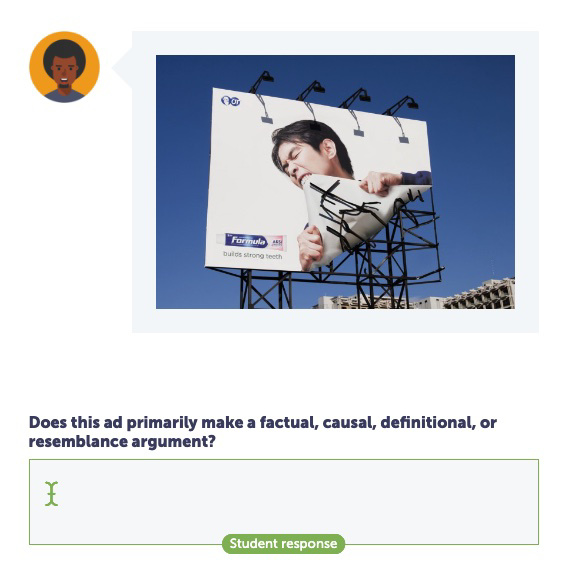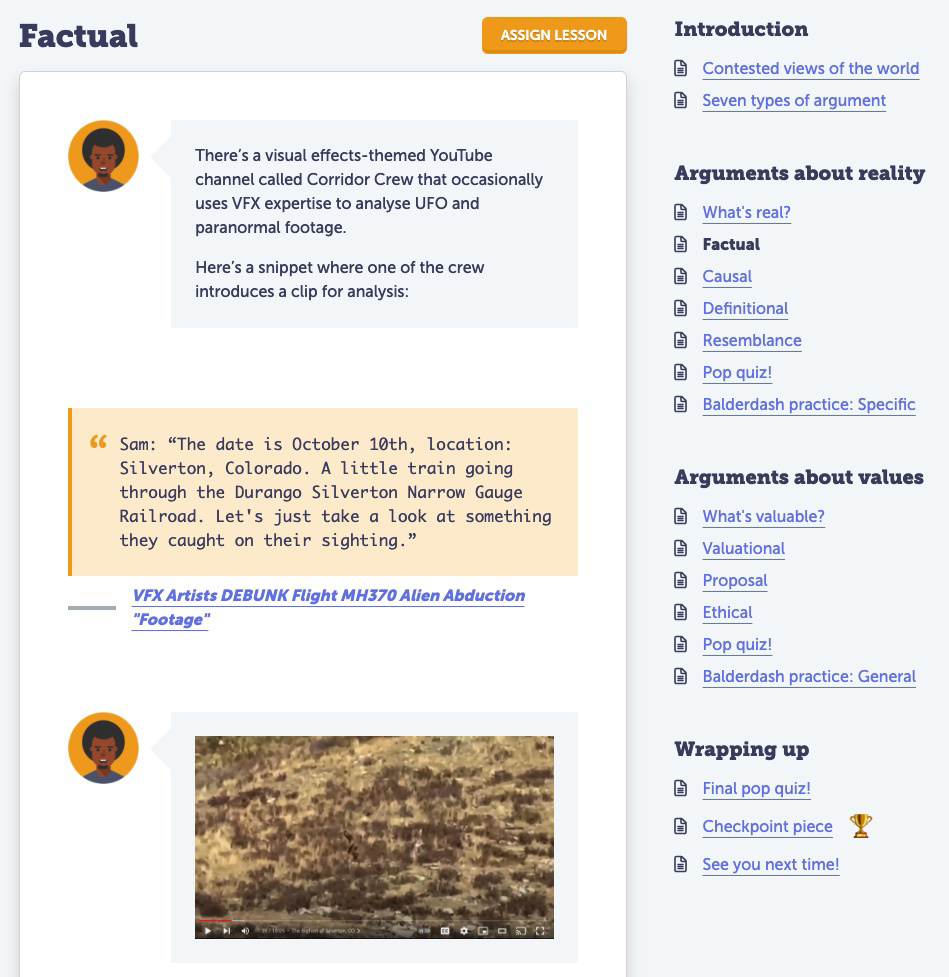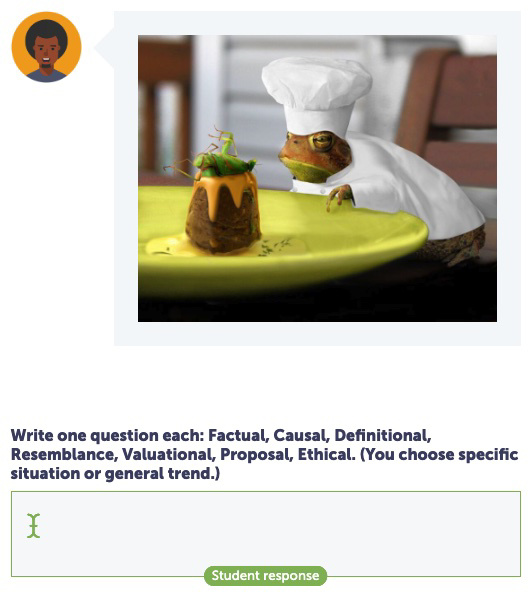It's a big one this week!
Building on last week's lesson on cause & effect vs criteria & match reasoning, we've published Seven Types of Argument.
This lesson introduces students to the way we use reasoning to tackle a range of questions about the world.
The seven types of arguments we introduce are:
- Factual
- Causal
- Definitional
- Resemblance
- Valuational
- Proposal
- Ethical
The point of the lesson isn't to master each argument type so much as to learn to recognise their distinctive qualities and get a sense of how they can interact, because once you've learned about them, you'll see them everywhere!
As with the reasoning lesson, this lesson is more about thinking than writing:
This lesson will be followed by Argument Components, which will unpack building blocks that can be used to construct any type of argument.



